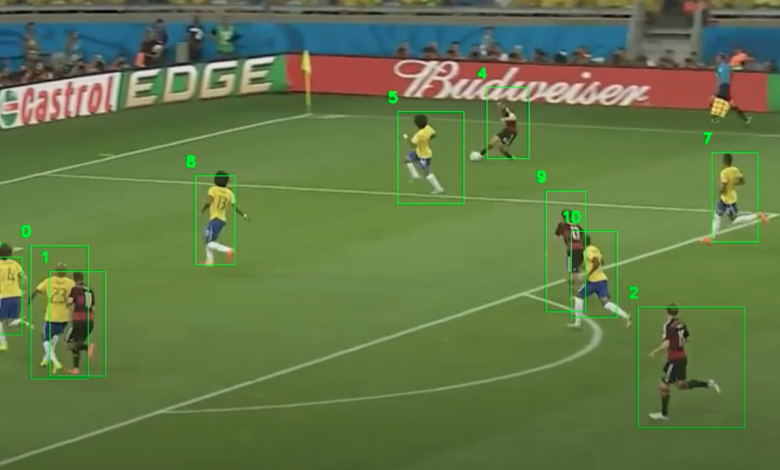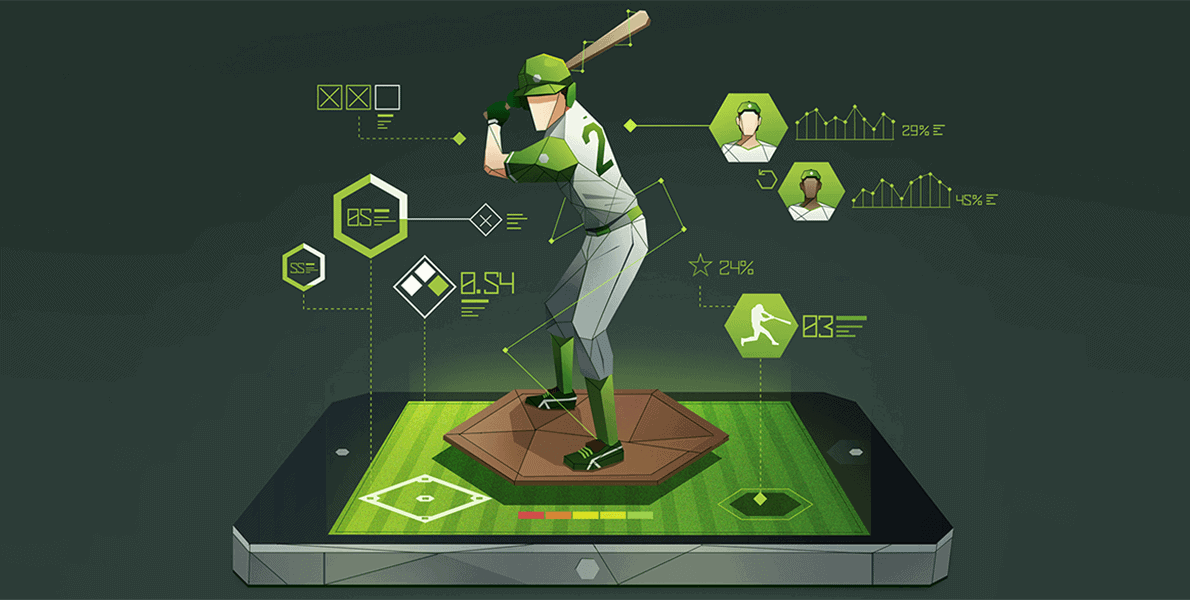How to Integrate AI in Sports for Performance Optimization in 2023

In the ever-evolving world of sports, athletes and teams are constantly seeking ways to gain a competitive edge. As we step into 2023, the integration of Artificial Intelligence (AI) has become a game-changer in the realm of sports performance optimization. This article will explore the exciting possibilities that AI brings to the world of sports and how it can be harnessed to enhance athletes’ capabilities and team performance.
What is AI?

Artificial Intelligence refers to the development of computer systems that can perform tasks that typically require human intelligence. This includes learning, reasoning, problem-solving, and decision-making. In the context of sports, AI in Sports is revolutionizing the way athletes and teams operate by providing intelligent insights and recommendations.
The Growing Influence of AI in Sports
Over the past few years, AI has gained significant traction in the sports industry. It is no longer a novelty but an integral part of training, strategy, and fan engagement. AI’s ability to process vast amounts of data and generate valuable insights has opened up new possibilities for optimizing sports performance.
Data Analytics and AI
Leveraging Data for Performance Insights
One of the primary ways AI in Sports is transforming sports is through data analytics. Athletes and coaches can now collect and analyze a wealth of data, including player movements, heart rates, and even game statistics. AI algorithms can spot trends and patterns that might be invisible to the human eye, helping teams make data-driven decisions.
Predictive Analytics in Sports
Predictive analytics powered by AI can forecast various scenarios in a game. This assists teams in making strategic choices, such as when to substitute players, which tactics to employ, and even predicting potential injuries based on players’ physical condition.
Wearable Technology and AI
Monitoring Athlete’s Health and Performance
Wearable devices equipped with AI are worn by athletes during practice and games. These devices monitor crucial health metrics like heart rate, body temperature, and fatigue levels. If an athlete is pushing their limits or showing signs of exhaustion, AI in Sports can notify coaches and trainers in real-time.
Real-time Feedback and Coaching
AI-enabled wearables can provide real-time feedback to athletes. For instance, a tennis player can receive instant feedback on their serve technique, helping them make adjustments immediately. This continuous feedback loop accelerates skill development.
AI in Game Strategy
Analyzing Opponents and Creating Tactical Plans
AI can analyze vast amounts of data on opponents’ playing styles and strategies. This information helps coaches devise game plans that exploit the weaknesses of the opposing team while maximizing their own strengths.
In-Game Decision Support
During games, coaches can receive real-time AI-generated suggestions based on the unfolding situations. This assists them in making critical decisions, such as whether to challenge a referee’s call or change tactics on the fly.
Injury Prevention and Rehabilitation
Identifying Injury Risk Factors
AI algorithms can detect potential injury risk factors by analyzing an athlete’s movements and biomechanics. This proactive approach enables teams to intervene and prevent injuries before they occur.
Personalized Rehabilitation Programs
In the unfortunate event of an injury, AI in Sports can design personalized rehabilitation programs for athletes. These programs consider the specific injury, the athlete’s physical condition, and their progress throughout the recovery process.
AI and Fan Engagement
Enhancing Fan Experience
AI-powered technologies like chatbots and personalized content recommendations are enhancing the fan experience. Fans can interact with AI-driven virtual assistants to get updates, purchase tickets, and access exclusive content.
AI-Powered Virtual Reality
AI-driven virtual reality experiences allow fans to immerse themselves in the game like never before. Virtual reality headsets can provide a 360-degree view of the game and even simulate being on the field with their favorite players.
Ethical Considerations
Data Privacy and Security
With the increased reliance on data, sports organizations must prioritize data privacy and security. Protecting athletes’ and fans’ sensitive information is paramount.
Fairness and Transparency in AI
Ensuring that AI algorithms are fair and transparent in their decision-making processes is crucial. AI should not perpetuate bias or discrimination in sports.
Case Studies
Success Stories of AI Integration
Several sports teams and organizations have experienced remarkable success through AI integration. These case studies highlight the tangible benefits of adopting AI technologies.
Challenges Faced by Early Adopters
While AI offers numerous advantages, early adopters have also faced challenges in implementing these technologies. Understanding these challenges is essential for future endeavors.
Future Trends in AI and Sports
The world of sports has always been a playground for innovation and human achievement. From athletes pushing the boundaries of physical excellence to the evolution of sports equipment, the quest for improvement has been relentless. In recent years, there has been a significant shift towards integrating Artificial Intelligence (AI) into the world of sports to enhance performance and gain a competitive edge. As we step into 2023, the future of integrating AI in sports looks promising, revolutionizing the way athletes train, compete, and recover.
Understanding AI in Sports

AI-Powered Coaching
One of the most notable advancements in sports technology is AI-powered coaching. Gone are the days when coaches relied solely on their experience and intuition to guide athletes. AI algorithms analyze vast amounts of data, including athlete performance metrics, biometrics, and even weather conditions, to offer personalized training programs. These programs adapt in real-time, ensuring that athletes make the most of their training sessions. Whether it’s refining a golfer’s swing or perfecting a sprinter’s start, AI is a game-changer in optimizing athletic performance.
Injury Prevention
Injuries are a bane for athletes, often leading to setbacks in their careers. AI plays a crucial role in injury prevention by monitoring an athlete’s biomechanics and identifying potential risks. Wearable devices equipped with AI can track an athlete’s movements, detecting irregularities that might lead to injuries. Coaches and medical staff can then take proactive measures to prevent injuries, thus ensuring that athletes remain at the peak of their physical condition.
AI in Sports in Game Strategy
Tactical Analysis
AI has also infiltrated the world of game strategy. Coaches and teams now use AI to analyze opponents’ strategies, strengths, and weaknesses. By crunching enormous datasets, AI can predict opponents’ moves and suggest counter-strategies. This not only enhances a team’s performance but also adds an element of unpredictability to their game.
Real-time Decision Making
In fast-paced sports like soccer or basketball, split-second decisions can determine the outcome of a match. AI systems analyze game data in real-time and provide coaches with valuable insights. These insights help coaches make informed decisions quickly, such as substituting a player, changing tactics, or calling a timeout. The result is a more dynamic and adaptive approach to sports strategy.
Fan Engagement
Personalized Fan Experience
AI isn’t just benefiting athletes and coaches; it’s also changing the way fans experience sports. AI algorithms analyze a fan’s preferences and behaviors, delivering personalized content. Whether it’s tailoring the viewing experience or suggesting merchandise, AI ensures that fans feel more connected to their favorite sports and teams.
Virtual Reality Experiences
AI combined with Virtual Reality is taking fan engagement to the next level. Fans can immerse themselves in a 360-degree virtual stadium experience, providing a taste of being at the game even when miles away. This innovation bridges the gap between fans and their favorite teams, making sports more accessible and exciting.
The Road Ahead
The future of integrating AI in sports is undoubtedly exciting, but it comes with its own set of challenges. Athletes and sports organizations need to address concerns related to data privacy, ethics, and the potential overreliance on AI in Sports. Striking a balance between the human element of sports and AI-driven enhancements will be key to ensuring the integrity and spirit of the game remain intact.
AI-Driven Sports Leagues
The future may see the emergence of AI-driven sports leagues where AI-controlled teams compete against each other. This futuristic concept could reshape the sports landscape.
Potential Innovations

AI’s rapid evolution means we can expect innovations that we can’t even imagine today. The possibilities are endless, and the sports industry is sure to benefit from them.
Conclusion
Embracing the AI Revolution in Sports
The integration of AI in sports is no longer a choice but a necessity for those who wish to stay competitive. It enhances athlete performance, engages fans, and opens up new avenues for strategy and innovation.
The Exciting Future Awaits
As we step into 2023 and beyond, the relationship between AI and sports is set to flourish. With continued advancements and ethical considerations, AI will undoubtedly shape the future of sports in unprecedented ways.
Read more : How to Prepare for the Rise of Biodegradable Electronics in 2023
FAQs(AI in Sports)
What is AI’s role in sports performance optimization?
AI plays a pivotal role in data collection, injury prevention, personalized training, and game strategy enhancement in sports.
How does AI enhance fan engagement in sports?
AI can provide personalized content and augmented reality experiences to enhance the fan experience.
What challenges does AI integration in sports face?
Challenges include data privacy, fair play, and the risk of overreliance on technology.
Are there any ethical concerns with AI in sports?
Yes, ethical concerns include privacy issues and the potential for unfair advantages.
What is the future of AI in sports betting?
AI algorithms are expected to provide more accurate odds and predictions for sports betting enthusiasts.
Read more : How to Embracing Drone Technology in Various Industries in 2023







